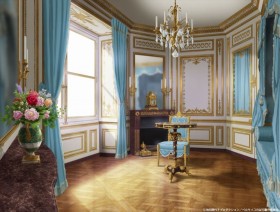Interview: Riyoko Ikeda Reflects on Gender Inequality in Her 20s and Staying True to Her Beliefs
Fighting Gender Inequality and Being Labeled an Eccentric
Challenging Wage Disparities
— The Rose of Versailles portrays Oscar’s life as a woman living as a man during an era of stark gender inequality. What was the societal landscape like when the series was first serialized? How do you view the progress toward gender equality over the past 50 years?
Ikeda:
While gender inequality has decreased compared to the past, Japan still has a long way to go by global standards. The traditional mindset that “men work and women stay at home” remains strong. However, I see this belief gradually fading among younger generations.
A male acquaintance of mine took full paternity leave to care for his newborn, which shows how times have changed. However, when I was working on The Rose of Versailles, women couldn’t advance in their careers, and I was paid half the salary of my male peers.
I once protested, asking, “Why am I paid half when we’re in the same magazine and have similar popularity?” The response shocked me: “Men need to support their wives, and women are supported by their husbands. That’s why men earn more.” People were stunned that I dared to question the system.
I received many letters from working women at the time, saying, “I wish I had someone like André in my life.” But I didn’t create The Rose of Versailles to advocate for women’s rights. My philosophy has always been to write what I want, and it’s up to the readers to take away their own meanings.
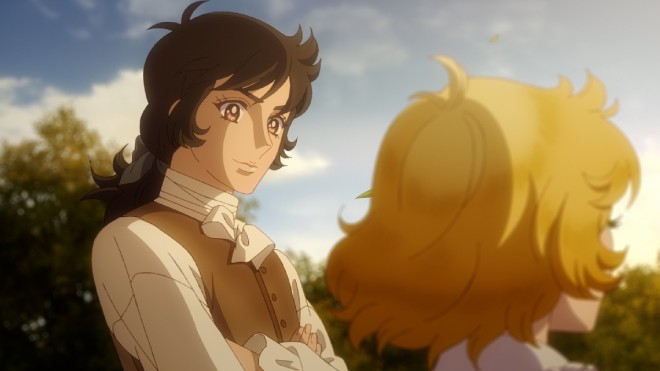
Scene cuts from the movie The Rose of Versailles (© Riyoko Ikeda Production / The Rose of Versailles Movie Production Committee)
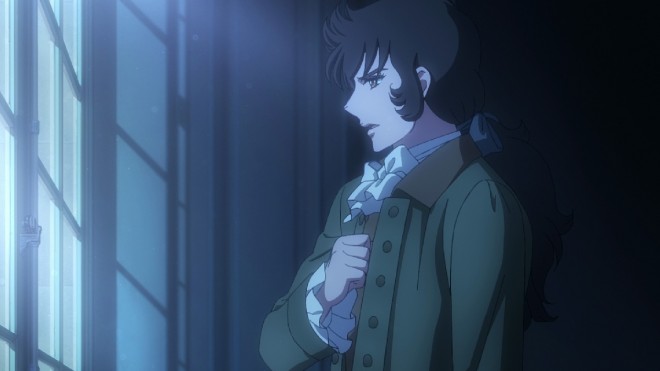
Scene cuts from the movie The Rose of Versailles (© Riyoko Ikeda Production / The Rose of Versailles Movie Production Committee)
The Timeless Appeal of The Rose of Versailles
Generational Differences in Interpretation
— With this theatrical release, what do you think gives The Rose of Versailles its timeless appeal across generations?
Ikeda:
The TV anime from decades ago was popular even in Europe. I heard that posters of the show were displayed on pillars at Milan’s central station.
Each generation resonates with the story differently. For example, children might be drawn to the beautiful dresses. On the other hand, adults may sympathize with the romantic entanglements, like Fersen and Antoinette’s forbidden love. Some readers might think, “I can totally relate to Antoinette’s feelings now that I’m older.” This diversity in interpretation keeps the work engaging.
When I look back, I’m amazed by Fersen’s love for Antoinette—he truly meant it when he said, “I’ll love you forever.” Even as the creator, I find that incredibly moving.
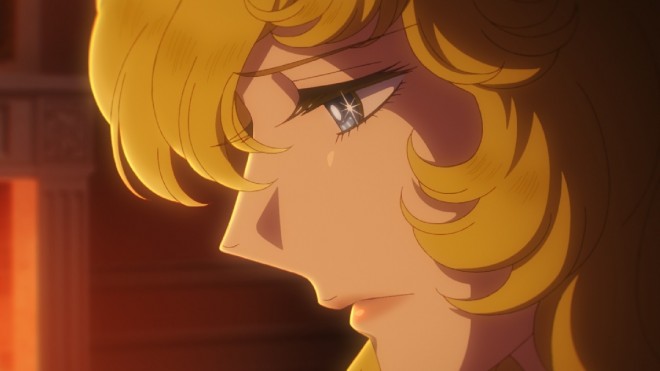
Scene cuts from the movie The Rose of Versailles (© Riyoko Ikeda Production / The Rose of Versailles Movie Production Committee)
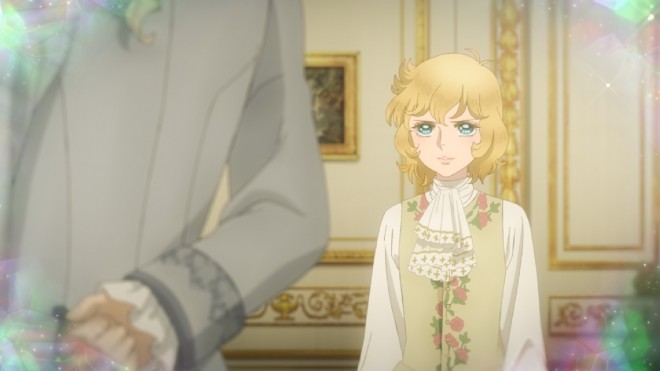
Scene cuts from the movie The Rose of Versailles (© Riyoko Ikeda Production / The Rose of Versailles Movie Production Committee)
— What would you like new audiences experiencing The Rose of Versailles for the first time through this movie to take away from it?
Ikeda:
This new movie was written and directed by women, which might be why it stays faithful to the original manga. I heard it took nine years to complete.
When I serialized the manga, I was told it had to end ten weeks after Oscar’s death. Unlike today, where popular works can continue indefinitely, there were strict deadlines. I wanted to write more, but I’m glad the story can now be reintroduced to modern audiences through this film.
I was 24 when I created The Rose of Versailles, and now I’m at an age where I think deeply about my own death and acceptance of it. Watching this movie, I realized that my beliefs and the way I live my life haven’t changed. I hope fans feel inspired to have confidence in their own choices and beliefs through this story.
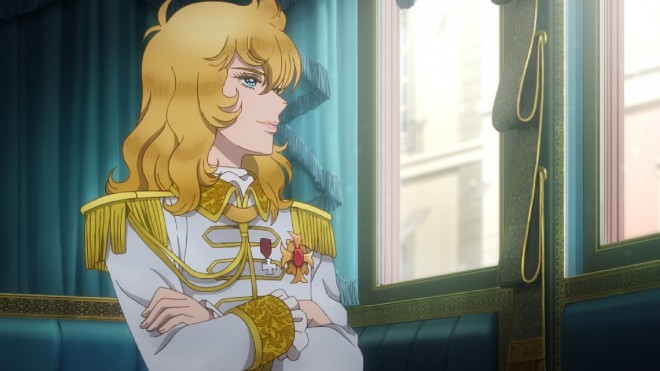
Scene cuts from the movie The Rose of Versailles (© Riyoko Ikeda Production / The Rose of Versailles Movie Production Committee)
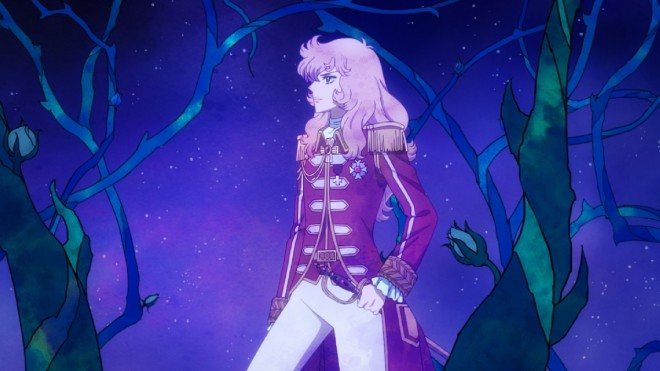
Scene cuts from the movie The Rose of Versailles (© Riyoko Ikeda Production / The Rose of Versailles Movie Production Committee)
About the Movie
Original Work: Riyoko Ikeda
Director: Ai Yoshimura
Script: Tomoko Konparu
Character Design: Mariko Oka
Music Producer: Hiroyuki Sawano
Music: Hiroyuki Sawano, KOHTA YAMAMOTO
Animation Studio: MAPPA
Production: The Rose of Versailles Movie Production Committee
Distributor: TOHO NEXT, Avex Pictures
Supported by: French Embassy in Japan / Institut Français
Voice Cast:
Oscar François de Jarjayes: Miyuki Sawashiro
Marie Antoinette: Aya Hirano
André Grandier: Toshiyuki Toyonaga
Hans Axel von Fersen: Kazuki Kato
Narration: Hitomi Kuroki
Theme Song: Ayaka - Versailles -ベルサイユ-
Source : ORICON NEWS
.jpg)
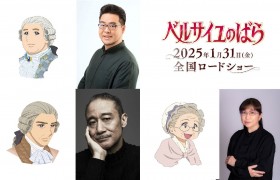
![[Lady Oscar] New Stills of Fersen from The Rose of Versailles Movie: Key Scenes Shaping Oscar and Antoinette’s Lives](/upimg/thumb/1000/1653/img280/7bebf279a2ac8b7ccfe7c1f0a8423473.jpg)
![[The Rose of Versailles] New Stills of André from The Rose of Versailles Revealed: Voice Actor Toshiyuki Toyonaga to Perform and Sing](/upimg/thumb/1000/1542/img280/12b66f76a59577e11626a5b793667be3.jpg)
![[Cool!] The Rose of Versailles Collaborates with Sanrio: New Visuals Featuring Hello Kitty as Oscar Revealed](/upimg/thumb/1000/1309/img280/6add9eba65f223070e1a1ede88445aad.jpg)
